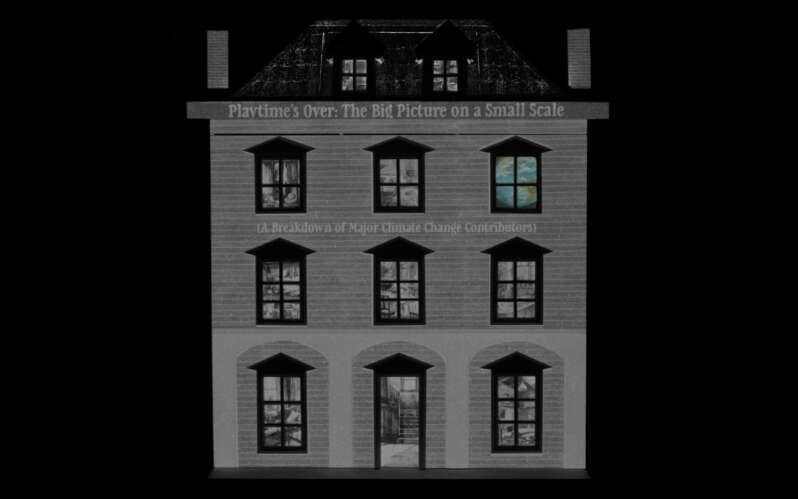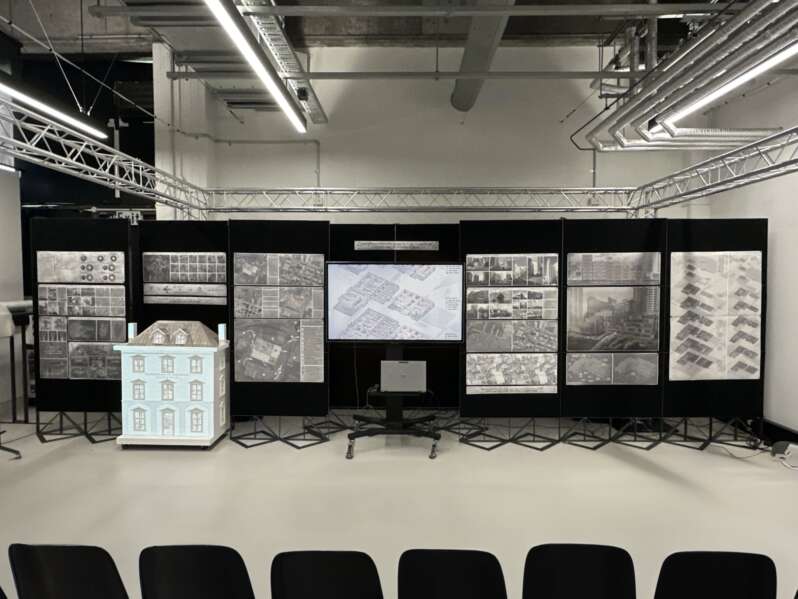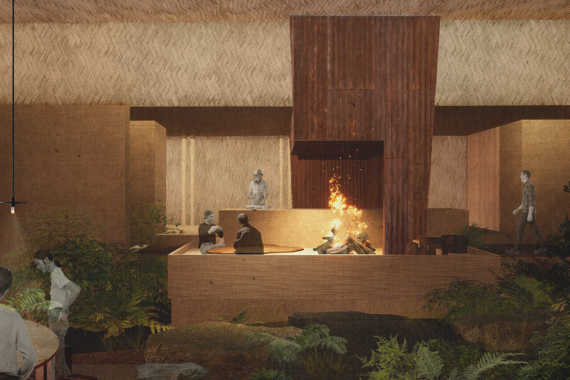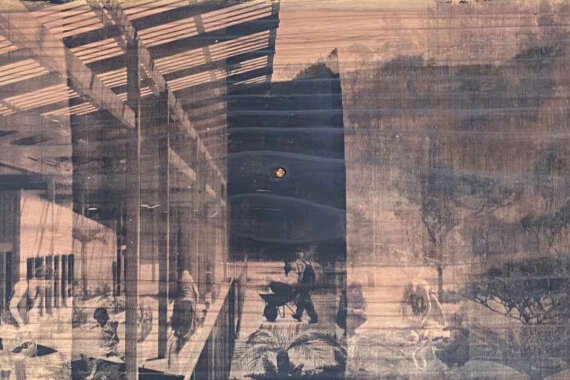Assembling Activism: Architecture as Political as Commentary in a Climate Crisis
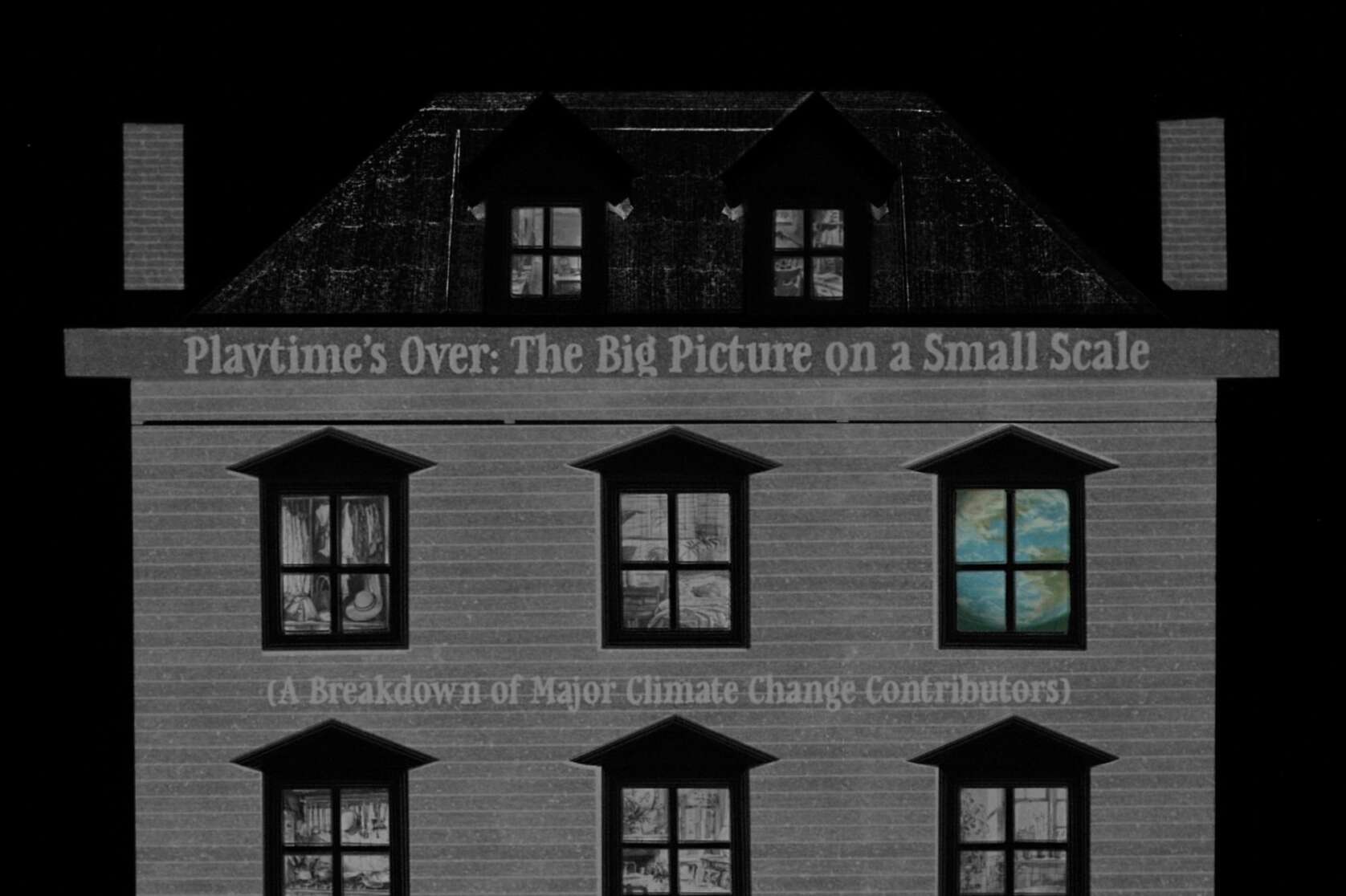
In a world grappling with the pressing existential threat of climate change, this thesis delves into the transformative potential of architecture as a persuasive instrument for political analysis and activism, asking: “How can critical interrogation and conceptualisation empower architecture to provide political commentary on the climate crisis and emerge as a facilitator of change?”
Set against a tenacious backdrop of escalating global temperatures and environmental devastation, initial research delves into climate change contributors, impacts, associated responsibility, and pathways to effective activism. The physical project begins with a culmination of this contextual research; presented through a video projection-mapped onto a dollhouse, entitled: ‘Playtime’s Over: The Big Picture on a Small Scale.’







